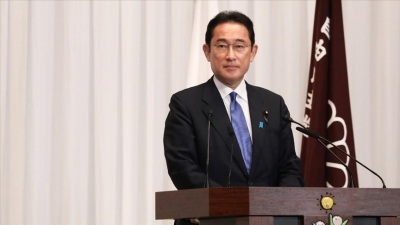
Fumio Kishida, former Japanese Foreign Minister, was elected as the nation’s 100th prime minister on October 4. The 64 year old succeeded Yoshihide Suga, who was criticised for his inept handling of the pandemic Suga after being just a year in office refused to run for the leadership, thereby paving the way for Kishida to head the ruling Liberal Democratic Party (LDP). In the Japanese general election held on October 31, Kishida and the LDP along with its coalition partner Komeito, retained a majority government. Kishida has vowed to combat the spread of COVID-19, reduce the income gap worsened by the pandemic, cut emissions, promote science and innovation, and create a stronger Self-Defense Force to protect the country amid growing threats from China and North Korea.
A former Foreign Minister, Fumio Kishida (64) used to be known as a dovish moderate but turned hawkish apparently to win over influential conservatives in the party. He is firmly entrenched in the conservative establishment and his victory in the party election was a choice for continuity and stability over change.
All but two of 20 Cabinet posts under Mr. Suga will be replaced, 13 of them appointed to ministerial posts for the first time, Japanese media reported. Most of the posts went to powerful factions that voted for Mr. Kishida in the party election. Only three women are reportedly included, up from two in Mr. Suga’s government.
Foreign Minister Toshimitsu Motegi and Defense Minister Nobuo Kishi are to be retained, ensuring continuity of Japan’s diplomacy and security policies as the country seeks to closely work with Washington under the bilateral security pact in the face of China’s rise and growing tensions in the region, including around Taiwan.
Mr. Kishida supports stronger Japan-U.S. security ties and partnerships with other like-minded democracies in Asia, Europe and Britain, in part to counter China and nuclear-armed North Korea. He is set to create a new Cabinet post aimed at tackling economic dimensions of Japan’s national security, appointing 46-year-old Takayuki Kobayashi, who is relatively new to parliament.
Japan faces growing nuclear and missile threats from North Korea, which last month test-fired ballistic missiles capable of hitting targets in Japan. Kishida also faces worsening ties with fellow U.S. ally South Korea over history issues even after he struck a 2015 agreement with Seoul to resolve a row over the issue of women who were sexually abused by Japan’s military during World War II.
An urgent task at home will be turning around his party’s sagging popularity, hurt by Mr. Suga’s perceived high-handedness on the pandemic and other issues. Mr. Kishida is expected to make a policy speech later this week before dissolving the lower house of Parliament ahead of the general election expected by mid-November.
He’ll also have to ensure Japan’s health care systems, vaccination campaign and other virus measures are ready for a possible resurgence of COVID-19 in winter, while gradually normalizing social and economic activity.
Mr. Kishida said last week that his top priority would be the economy. His “new capitalism” is largely a continuation of Mr. Abe’s economic policies. He aims to raise income of more people and create a cycle of growth and distribution.
A third-generation politician, Mr. Kishida was first elected to Parliament in 1993 representing Hiroshima and is an advocate for nuclear disarmament. He escorted former President Barack Obama during his 2016 visit to the city that, along with Nagasaki, was destroyed in U.S. atomic bombings in the closing days of World War II.
Credit : The Hindu
Picture Credit : Google




